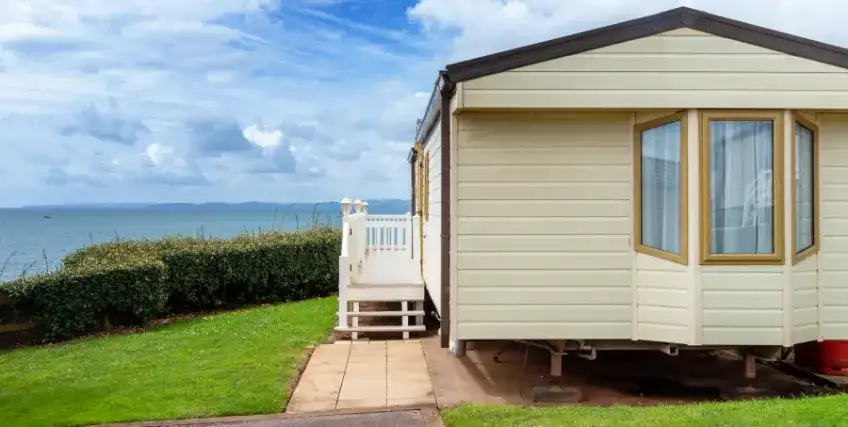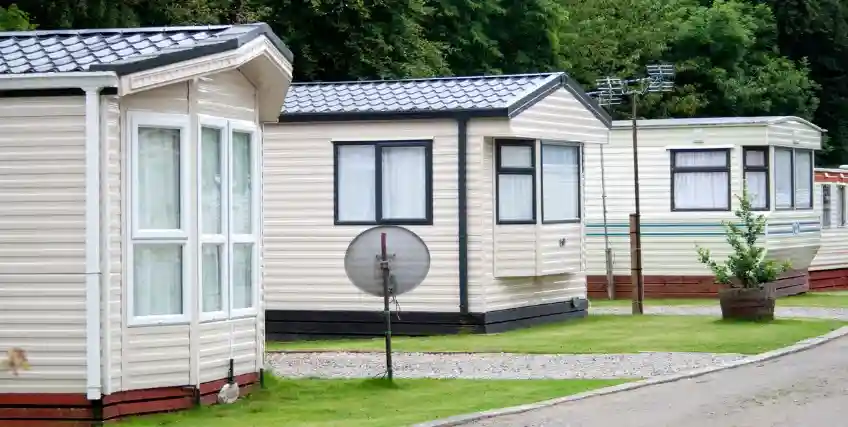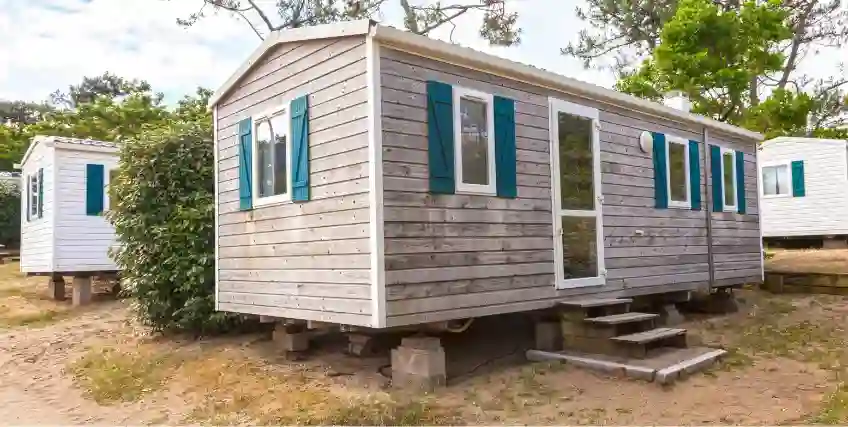Loans for Mobile Home Parks: Financing Strategies for Investors
Sep 30, 2025 | Last Updated on: Oct 01, 2025

Mobile home parks are gaining a lot of attention in the United States as a stable and profitable investment lately. For many small business owners, these mobile home park businesses provide consistent cash flow and serve a growing need for affordable housing. However, you must be wondering how to fund such a venture..
Loans for mobile home parks is a business financing tool that can help you acquire, improve, or refinance mobile home parks efficiently. Also, it is very important to approach the financing options in the right way. On the other hand, picking the wrong financing option can slow growth or increase costs.
In this article, you’ll learn how loans for mobile home parks work, what lenders look for, and how to secure the best loan for your situation.
Why Financing Matters for Mobile Home Parks
You as a small business owner can seek financing options to expand their mobile home park portfolio. You can use different types of loans for mobile home parks to acquire new properties, make essential upgrades, or refinance existing debt. But without the right financing option, growth often becomes difficult, even for experienced investors.
Loans for mobile home parks also help you maintain occupancy and attract more homeowners. You can fund improvements to roads, or community amenities that increase property value. Therefore, with the right business funding option, you gain flexibility to respond to market changes while maintaining a steady income.
Hence, affordable housing remains in high demand in the U.S. According to Construction Coverage, more than 22 million Americans live in manufactured homes. As a result, this trend suggests mobile home parks can provide reliable revenue for investors. Also, when you combine this demand with smart financing, your opportunities grow significantly.
How Mobile Home Park Loans Work
Now that you know financing is important for your mobile home park business’s growth, you must be wondering what makes loans for mobile home parks different from other real estate loans?
Loans for mobile parks cover acquisition, refinancing, or development of manufactured housing communities. They consider property types, tenant ownership, and infrastructure, unlike traditional real estate loans. Additionally, you will notice that lenders evaluate cash flow, occupancy, and your experience managing mobile home parks.
When you’re seeking loans for mobile home parks, here are some key terms you should understand:
- Loan Amount: This is the amount of total funds borrowed. But loan size depends on property value and lender policies.
- Interest Rates: The interest rates on mobile home park loans vary by loan program, type of financing, and your credit score. Moreover, fixed rate and interest only options also exist.
- Loan Term: This signifies that duration to repay the loan. The loan terms can vary depending on the type of loan you choose.
- Monthly Payments: The monthly payments include the principal amount and the interest. These must match your mobile home park’s income.
- Credit Score: You can secure competitive interest rates and better eligibility if you have a strong credit score.
- Down Payment: Loans for mobile home park lenders typically require 20-30% down payment depending on the type of financing, but it can vary.
For example, if you own a mobile home park with many occupied lots, your gross monthly lot rent can provide a substantial and predictable income stream. Hence, when you apply for loans for mobile home parks, lenders consider this steady cash flow, they evaluate your loan-to-value (LTV) ratio, and your ability to cover monthly debt payments.
Types of Loans for Mobile Home Parks
Depending on your mobile home park, and business investment goals, there are a lot of financing options available. These include:
Conventional Financing
These are traditional loans offered by many local banks and credit unions. They loans often require a substantial down payment but often come with competitive interest rates. You can access conventional financing for your mobile home parks with high occupancy and stable cash flow.
Fannie Mae Loans
Fannie Mae are government agency loans that support manufactured housing communities. These loan programs are best for stabilized properties. You can use these loans for mobile home parks as they provide long-term fixed rates and non-recourse terms, protecting you personally if the park struggles.
Freddie Mac Loans
Freddie Mac loans are also government agency loans for manufactured home loans. To qualify for these loans for mobile home parks properties must meet occupancy and home buyer requirements, such as limiting rental units. Also, they offer competitive interest rates and non-recourse protections, making them an attractive option for investors.
Seller Financing
Seller financing is a funding option where sellers act as lenders. These sellers offer loan options without going through traditional banks. You can negotiate terms, and down payment amounts directly with the seller. Hence, this option for loans for mobile home parks is useful if your credit score or loan size challenges conventional lending.
Bridge Loans
Bridge loans are offered by various private lenders with flexible terms. Interest rates may be higher, and loans often include interest only periods. These options are ideal for borrowers who need speed or want to refinance mobile home park debt quickly.
Financing Strategies for Investors
Once you understand the types of loans for mobile home parks and what lenders look for, the next step is to think strategically about financing. You need to evaluate your park’s needs, your investment goals, and the options available from different lenders. By planning carefully, you can select the loan program that best supports growth, improves cash flow, and ensures long-term success for your mobile home park investment.
You can use specific strategies to make loans for mobile home parks work for you:
- Match the Loan Program to Your Goals: Choose loans aligned with your property type, occupancy, and long-term plan.
- Use Loan-to-Value (LTV) Ratios Wisely: LTV affects your risk and interest rate. Keep it moderate for better financing options.
- Select Fixed Rate or Interest Only Options: Fixed-rate loans provide predictable payments. Interest only loans can improve cash flow early on.
- Cash-Out Refinancing: If your park appreciates, you can refinance and access equity for upgrades or acquisitions.
- Leverage Manufactured Home Loans: For homeowners in your park, offering financing through HUD (U.S. Department of Housing or Urban Development) or other programs can boost occupancy and attract tenants.
What Lenders May Look For
You should know the factors lenders evaluate when approving loans for mobile home parks:
- Occupancy Rates: Higher occupancy signals reliable income.
- Property Condition: Parks with maintained roads, utilities, and amenities are favorable.
- Borrower Experience: Demonstrated ability to manage parks improves eligibility.
- Credit Score: Strong credit provides access to better interest rates and larger loan amounts.
- Underwriting Documents: Lenders examine historical financial statements, rent rolls, and market analyses.
- Loan Options: Lenders compare conventional financing, commercial mortgage options, and HUD-backed loans.
Tips to Secure Loans Successfully
Here are actionable tips you can apply when seeking loans for mobile home parks:
- Keep financial statements current and detailed.
- Shop around for mobile home park lenders to compare interest rates and loan options.
- Work with a broker familiar with mobile home park lending.
- Maintain or improve your credit score.
- Consider non-recourse loans to protect personal property.
- Ensure your down payment and loan amount align with your financing goals.
You can also evaluate commercial real estate or manufactured home community loan programs for flexible terms. Many lenders offer competitive interest rates if your park has double-wide homes or stabilized occupancy.
The Bottom Line
You now understand that mobile home park financing is more than simply getting a loan. The right strategy can help you acquire, refinance, or improve parks while maximizing returns. You have multiple financing options: Fannie Mae, Freddie Mac, HUD, local banks, or private lenders. However, each option comes with unique terms and eligibility requirements.
You should review loan programs carefully, calculate LTV, and prepare detailed underwriting documents. By doing so, you increase the chances of securing favorable rates and terms for loans for mobile parks. Whether you plan to refinance mobile home park debt, offer loans for homeowners, or acquire a new property, understanding mobile home park loans gives you a strong foundation.
Hence, take the next step today. Reach out to mobile home park lenders and explore financing options. Your park’s growth and profitability depend on smart decisions you make.
FAQs About Loans for Mobile Home Parks
What are mobile home park loans?
Mobile home park loans are financing options specifically designed to buy, refinance, or develop manufactured housing communities. Unlike traditional real estate loans, these take into account unique factors like lot rents, tenant-owned homes, and park infrastructure.
Who can apply for mobile home park financing?
Borrowers who have experience managing parks, maintain good credit, and can show steady income from their properties usually qualify for mobile home park financing. However, local banks, private lenders, HUD programs, and agencies like Fannie Mae and Freddie Mac all have different eligibility criteria you’ll need to meet.
How do lenders decide whether to approve my loan?
Lenders look at various factors such as occupancy, property condition, cash flow, and your experience managing mobile home parks. They also check your credit score, down payment, and review financial documents like rent rolls and operating statements. Moreover, they want to see that you can reliably repay the loan.
Can I refinance a mobile home park?
Refinancing lets you replace an existing loan with a new one. This option may help you lower your interest rate, change the loan term, access cash-out equity, or switch to a fixed-rate or interest-only option. Hence, refinancing can be a smart way to improve cash flow and fund improvements.
What is loan-to-value (LTV), and why does it matter?
Loan-to-value compares the loan amount to the value of your park. Lenders use it to assess risk. A moderate LTV signals that you have equity in the property, making it easier to secure favorable interest rates and loan terms.
Frequent searches leading to this page
Related Articles
Term Loans are made by Itria Ventures LLC or Cross River Bank, Member FDIC. This is not a deposit product. California residents: Itria Ventures LLC is licensed by the Department of Financial Protection and Innovation. Loans are made or arranged pursuant to California Financing Law License # 60DBO-35839




